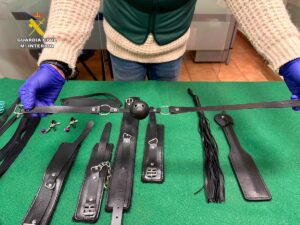
On the occasion of the International Day for the Elimination of Violence against Women, 25 November, reports, analyzes and testimonies. A folder carried out in partnership with Crédit Mutuel.
If economic violence is a form of domestic violence, then its impact does not only impact the private sphere. This has major economic and social impacts when it leads to labor market exclusion or prolonged dangerous conditions. And if this primarily concerns victims, then it also concerns all of us, and especially economic actors.
In companies, sometimes without realizing it, we can come into contact with colleagues or clients who are victims of domestic violence. So, how can we remain calm in facing this reality?
The first question arises for the company as an employer. While they work, domestic violence victims are still burdened by the tragedy they have experienced. In France, 83% of them regret the negative impacts at work which we can clearly understand. Absenteeism, procrastination, difficulty engaging fully in their tasks: so many weak signals should alert us. Domestic violence has economic impacts, first for the victims themselves and for the business world.
Entrepreneurs have a role to play. Of course to help the employee concerned. Sometimes they discuss their situation with one of their colleagues, but 70% of women victims of domestic violence consider it inappropriate to discuss it in a professional setting. Let’s end this taboo. The workplace should be a place of listening, which helps act and react. To do this, companies must implement appropriate systems that enable them to find solutions and provide support, without judgement.
In general, companies must address all issues of discrimination to which women are still victims, ensuring equal pay, fair access to positions of responsibility, the fight against casual sexism, etc.
Companies in the banking sector also have a special role because they are at the heart of the financial autonomy journey: account opening, access to credit, asset management, support in times of disruption. Without interfering in the personal lives of their customers, banks can contribute to the prevention of economic violence through better information and advice. Autonomy begins with one’s own account – which is an important complement to joint accounts –, a controlled means of payment, and the ability to save and borrow.
Of course, this struggle is about more than just business. This requires collective mobilization from the business world, public authorities and of course associations whose actions must be applauded. Across France, they provide support and care for victims. And we, the economic actors, have the means to act now. Let’s make this a strategic priority among our social commitments. Economic violence thrives in the shadows and silence. Let’s highlight them.
Financial emancipation for women is a social justice issue that cannot be ignored by economic actors. Although awareness of what constitutes economic violence is recent, progress has been made quickly. But let us be aware and humble in facing what we still have to do. After several centuries of economic inferiorization of women, there is still a long way to go.




